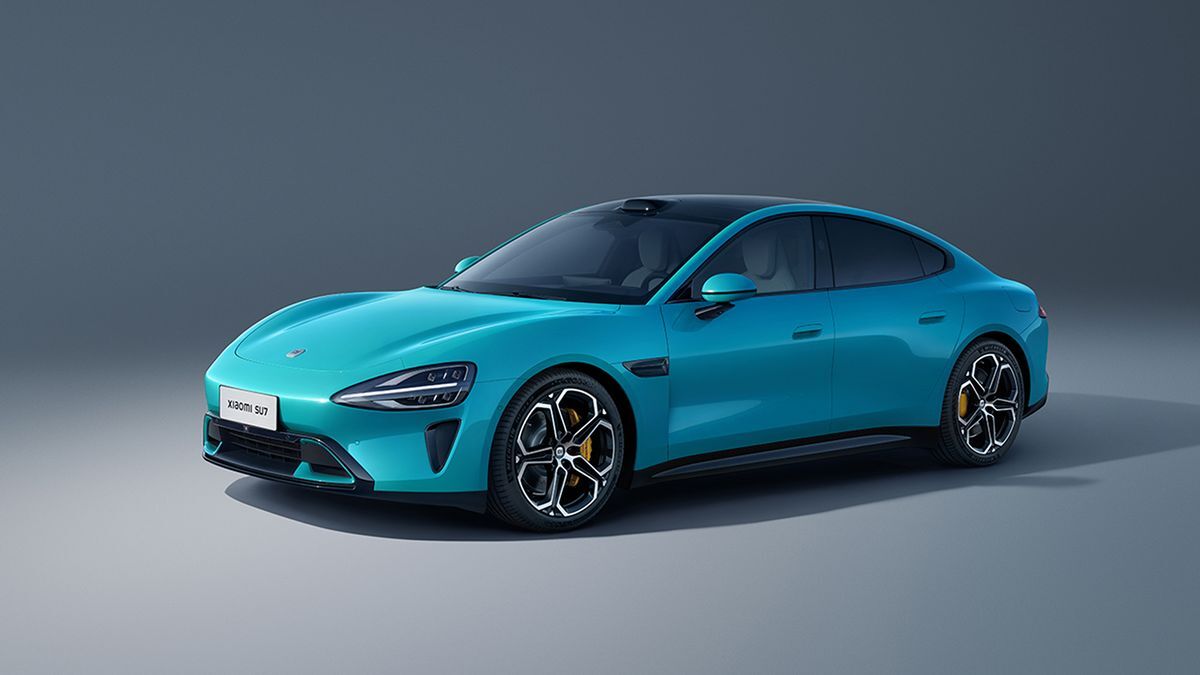its cool that evs are becoming a thing and all but please please don’t make them into smartphones.
Best they can do is make them tracking devices. https://foundation.mozilla.org/en/blog/privacy-nightmare-on-wheels-every-car-brand-reviewed-by-mozilla-including-ford-volkswagen-and-toyota-flunks-privacy-test/
Xiaomi has a great track record with electronics, especially smartphones, so it will be interesting to see if they can bring some of that success to EVs. On paper this looks impressive. Xiaomi has been doing a lot of independent research into autonomous driving. This will launch with impressive abilities, but it’s not at Level 4 driving yet.
I’ve been a fan of a lot of xiaomi products, but the software left me mostly unimpressed.
Probably not gonna buy this car, but I’m still curious how good the software in it is.
People seriously need to stop using distance as a measure for charging speeds and battery capacity. It makes no fucking sense and makes it impossible to compare actual charging speeds, battery capacity and efficiency between cars.
Thankfully, you’re not in marketing for any of the EV companies. You’d wind up bleeding off so much market share to other EV companies who understand that putting Range Anxiety to rest generates more sales for first time EV buyers.
Why? It’s the main thing people talk about when it comes to EVs. How far can I go? How fast can I recharge?
It seems to be the most useful measurement.
On top of that it’d be great for comparison which I imagine is the whole reason for it being presented like this I would rather have 800 km range and get 500 of that in 15 minutes (like if I’m on a long trip) than have 850 total range and only 15 km in 15 minutes
But that’s exactly why it’s a bad unit to make comparisons on…I could claim 500km of range* in 15 on a car that only has 50kW of charging speed.
*but only if you keep the speed under 50km/h, the temperature is 25°C, the road is dry and there is a tail wind.
By using km as the unit, they can obfuscate a ton of information that make direct comparisons nearly impossible.
The very same thing is true with fuel economy ratings. The usefulness in such statistics is not in their specific accuracy for one vehicle, but in comparing more than one vehicle with each other (provided, of course, that the procedure for arriving at the ratings are similar enough).
Sure, if it was consistent. But the range varies wildly even on the same car depending on speed and weather conditions. Is it 500km highway or 500km city driving? Is it in the winter or in the summer? Is it on a rainy day? Is there snow? Is there head wind or tail wind? 500km is a completely useless unit for charging speed and battery capacity without comprehensive context.
That’s fair. Probably should be judged like mpg ratings are.
Yeah, and what about mpg on gas cars! or battery life on phones! Or longevity of light bulbs! Or number of prints for ink sources! Or how many miles a tire should last! Or average time to complete a game! Or…
You know what? As long as the measurement is consistently measured between things, the measurements are comparable. A car having X range compared to another car with X range is probably a decent indicator of relative ranges even if it isn’t perfect in practice.
Just assume real world ranges are like 80% of whatever is advertised just like mpg estimates.
Yeah, and what about mpg on gas cars! or battery life on phones! Or longevity of light bulbs! Or number of prints for ink sources! Or how many miles a tire should last!
I get where you’re coming from but two of your examples are agreeing with their point. They’re asking for a better standardization for an electric cars overall efficiency same as ice vehicles using mpg and lightbulbs using number of hours they are expected to last.
By just stating the range of a vehicle they are removing the ability to do a good compare and contrast across all electric vehicle. For example, the electric Hummer has a EPA est. range of 329 miles while CyberTruck has a range 320 miles. By using only range both seem comparable but the Hummer achieves its range with a 212 KWh battery pack vs the CyberTrucks 100 KWh battery pack. It’s the ICE vehicle equivalent of a car stating that it gets 500 miles per gas tank. Yeah sure the vehicle can go 500 miles between fill ups but if the car only gets 10 miles to the gallon that’s going to be one hell of gas bill. The solution here is for all EVs to list their battery size and its Miles per Gallon equivalent (mpge) thus allowing buyers to efficiently compare two vehicles no matter battery pack size difference.
I think the point the previous commenter was getting at was that a car that goes twice as far but takes four times as long to charge from ten to eighty is practically far worse than the first one for long journeys, at least so long as the range covers local trips.
The obsession with range also puts a very wasteful pressure on the market to use bigger and bigger batteries, which add to both their cost and environmental impact, most of which may have not get used a few times in the cars life if at all.
I find it quite intuitive. But then I’d never even consider a Tesla, where that south African cunt just flat out lied about the range
Is it 500km highway or 500km city driving in those 15min? Is it in the winter or in the summer? Is it on a rainy day? Is there snow? Is there head wind or tail wind? 500km is a completely useless unit for charging speed and battery capacity without context, and all these things have a huge impact on the range you actually get from the exact same amount of power. Using kW and kWh for charging speed and capacity is unaffected by any external conditions.
It’s fuckin simple
It says 500km
It’s 250
Using kW and kWh for charging speed and capacity is unaffected by any external conditions.
Not only is it unaffected by external conditions, it’s a completely useless number for 99% of people, too!
Indeed. Usually what happens is businesses will bend the truth or flat lie until regulations force some standard (and even then, some companies will continue bs-ing).
Although, kW and kWh don’t really give you anything meaningful to compare, because vehicle weight and motor efficiency curves differ. It would be like comparing gasoline cars based on tank size.
What’s needed is some rating system similar to how city/hwy mpg is estimated.
If you really want values to compare between EVs, consider picking a range measurement specification (WLTP, NEDC or EPA) and look up the range specified as tested.
EPA is city driving only, so probably ignore that. Most if not all manufacturers give their range in WLTP, so that is somewhat directly comparable: notwithstanding software restrictions, BMS limitations in various weather conditions etc, as these cars are computers at their core and vastly more dynamic compared to a combustion engine.
No mainstream measurement spec may meet your requirements though IMO - may be a better idea for you to pick some EVs to compare, and look at real world accounts from other users. All the range in the world is useless if your EV’s computer crashes while charging preventing you from fast charging or operating certain parts of the vehicle, for example
Yeah! And stop talking about MPGs in gas cars too, how is that relevant to anyone?
Makes sense. What are you thinking would be better? km/kWh efficiency, kWh capacity, and kWh/h charging rate?
I guess that last one could be kW charging rate. I raised my own eyebrows at myself typing kWh/h.
Then again it’s tough to capture a non-linear charge rate in one number. Maybe the press release could come with an asterisk: “*This is the coefficient of a logarithmic function.” I’m guessing you have something more sensible in mind like time to X kWh, or time to 80% charge.
Do you think people would stand for the technically-equivalent-and-simplified m/Wh instead of km/kWh? Slaps roof of car “Got a lotta meters in this one!”













